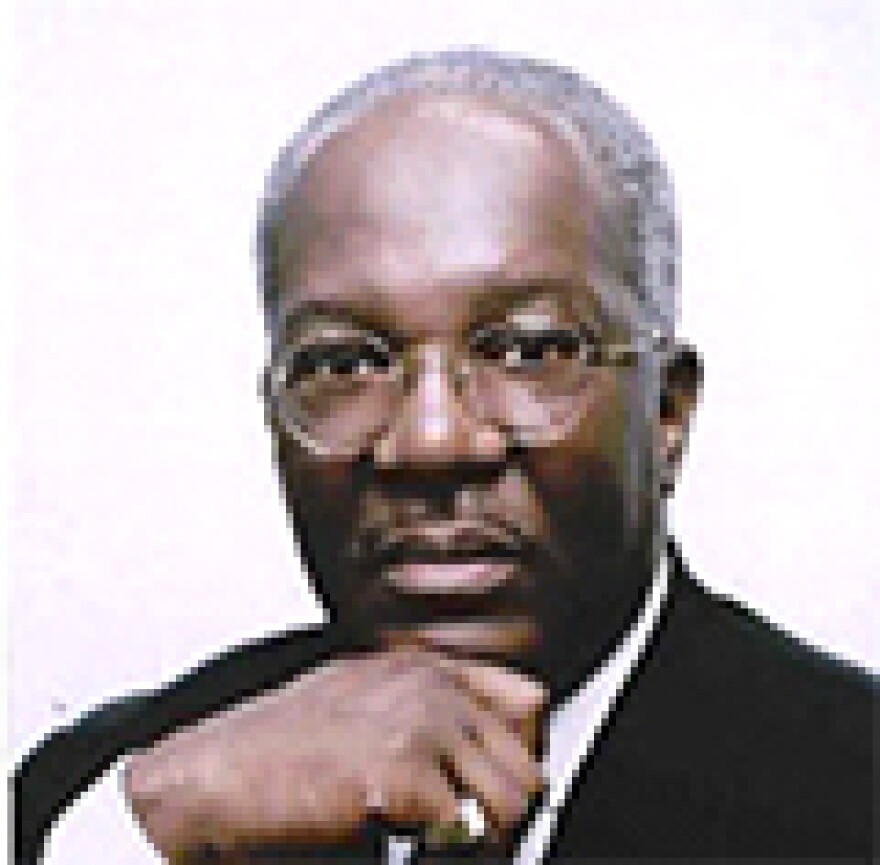Mourners said goodbye Thursday to civil rights activist and minister, the Rev. Dr. C T Vivian, a top aide to Rev. Dr. Martin Luther King Jr. Vivian died at the age of 95 last week. His casket laid in state in the rotunda of Georgia’s state capitol building Wednesday and his funeral was held Thursday in Atlanta.
Vivian, who received the Presidential Medal of Freedom in 2013, has numerous connections to North Carolina, as an often guest lecturer at Shaw University and a diversity trainer for universities and businesses in the state. He also assisted the Friendship 9 in Rock Hill when the college students were jailed for staging a sit-in at a segregated lunch counter in 1961, and worked with chapters of the Southern Christian Leadership organization in the state and on voter registration driver.
When WFAE's "All Things Considered" host Gwendolyn Glenn interviewed him in 2013 during the 50th anniversary of the March on Washington, Vivian talked about the importance of voting.
"Every one of us should carry our voter registration card with us and say to another person we’re with, wherever they are, say, 'Where’s yours? Here’s my voter registration card. Where’s yours and why don’t you have it?'" he said.
Vivian was often described as a "Man of Movement" and a "quiet general." Dr. David Forbes, the former dean of Shaw University's Divinity School, who knew Vivian from his visits to the school, describes him this way.

David Forbes: He spoke directly and raw to the issues of race in America. If he addressed a group like I heard him at North Carolina State, at times, half of the white folks would get up and walk out because he was that direct in terms of how the dynamics of racism and how it operated.
Gwendolyn Glenn: And he worked closely with Dr. King. They were very good friends. And he was often by his side throughout the civil rights movement.
Forbes: That is correct. Dr. King relied very heavily on C.T. Vivian for his counsel and for his wisdom in terms of how to strategically address issues in the movement.
Glenn: We all remember that iconic video of him standing on the steps and being punched when he was trying to register people to vote. What would you say was his big contribution to the movement?
Forbes: He refused to bow down to racism. He stood up to it and he was willing to pay whatever consequences were necessary.
Glenn: Why do you think he is not better known?
Forbes: He did not have an arrogant bone in his body. He felt comfortable in allowing others to be on the forefront while he would be supportive and do the heavy lifting.
Glenn: And even after the 1960s, he was still out there pushing.
Forbes: Oh, yes. And at the 50th anniversary of SNCC (Student Nonviolent Coordinating Committee) in Raleigh at Shaw University, he was there and spoke.
Glenn: Tell me about that.
Forbes: He was able to bring some of the flavor from 1960 founding of SNCC. He was able to bring fresh reflections of what the original movement was all about. If future generations continue to confront racism and the lack of justice, that there would be continued accomplishments.
Glenn: And I remember hearing him during the Congressional Black Caucus annual legislative weekend where he was honored by the Southern Christian Leadership Conference and he, at the time, was acting president when the organization had gone down a lot. And he was given a lot of credit for bringing the SCLC back.
Forbes: Well, SCLC was very strong in 1960 and over the years, its influence, kind of waned. But it is to his credit that here in Raleigh and Charlotte and other places, SCLC is alive and well because he was able to sound the clarion call that SCLC and civil rights organizations were as needful today as they were in 1960.
Glenn: And with the protests going on now, what do you think his message would be to the protesters?
Forbes: I think he would celebrate that the street demonstrations are stronger today by their composition. Because in 1960, there were only a few whites and others who marched and who showed their conviction. But today there is a very robust presence of multiethnic and and multicultural people, and that will likely be responsible for dramatic changes in our body politic.
Glenn: And one thing I wanted to ask you, a lot of people are not aware of the work that he did through his leadership organization and also the work that he did in terms of diversity training.
Forbes: Oh, yes. I heard him in North Carolina State University doing diversity training. He was very, very effective. A kind of direct and in-your-face deliberator in a training room. He dealt in dynamics by raising questions, by confronting and made it very difficult for anyone to hide from white privilege or from racism.
Glenn: But he always had a very upbeat personality.
Forbes: Oh, yes. He loved people. And that's what made him so very effective that he could confront -- but confront and love. It was not personal or visceral.
Glenn: Dr. David Forbes, former dean of the Divinity School at Shaw University.
Want to read all of WFAE’s best news each day? Sign up for our daily newsletter, The Frequency, to have our top stories delivered straight to your inbox.


